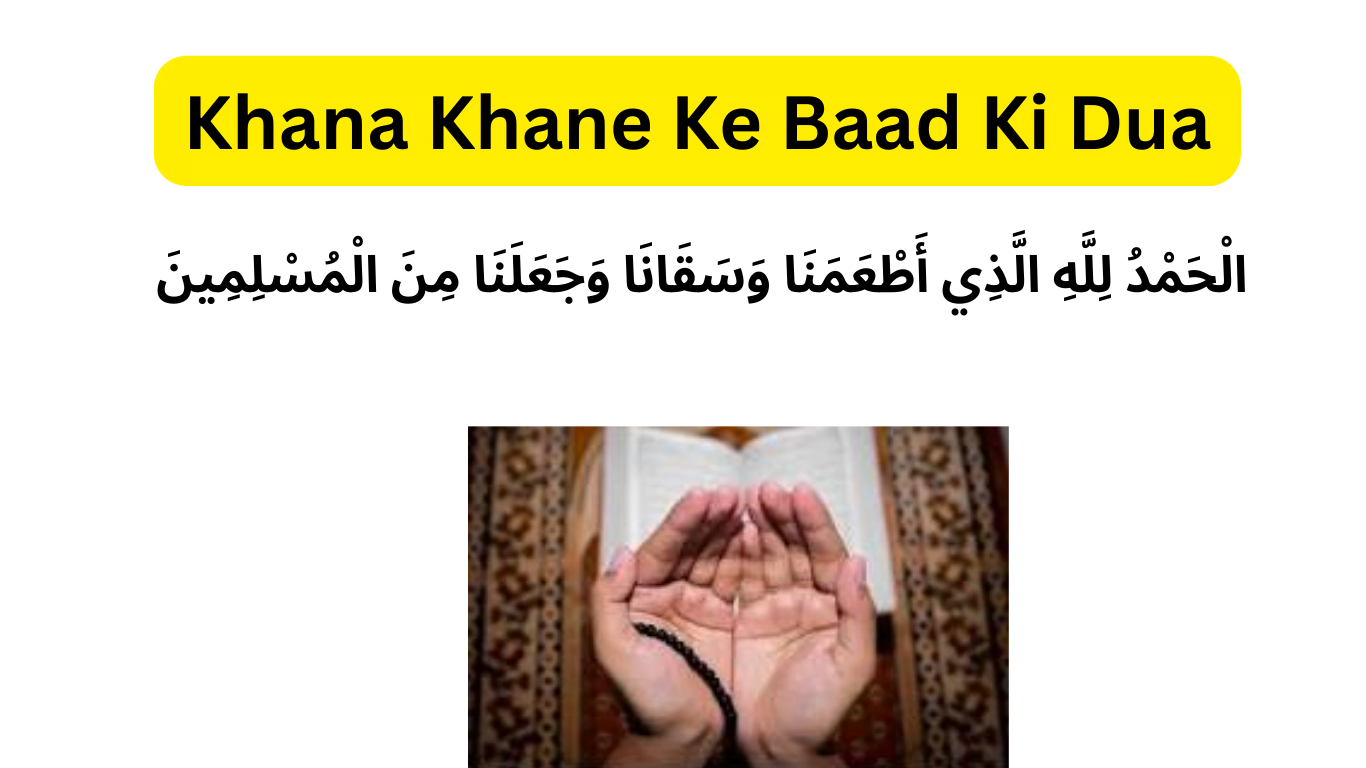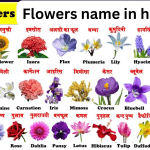Every religion requires prayer, which is offered by its supporters in an effort to obtain blessings from their particular deities. While there are many different ways to pray, one of the many supplications found in Islam is called “Dua after Eating” in English.
This small prayer is read before consuming meals, attributing thanks to Allah for whatever has been given to eat and seeking his mercy and blessing upon the offering.
Gratitude is expressed at mealtimes in many cultures. One such beautiful practice is the “khana khane ke baad ki dua,” literally the prayer said after eating. This paper looks into the importance of this dua, its cultural and spiritual aspects, and the impact it has on individuals and communities.
Khana Khane Ke Baad Ki Dua in Arabic
الْحَمْدُ لِلَّهِ الَّذِي أَطْعَمَنَا وَسَقَانَا وَجَعَلَنَا مِنَ الْمُسْلِمِينَ
Khana Khane Ke Baad Ki Dua in English
Thanks to Allah Azzawajal who fed us and made us among Muslims
Khana Khane Ke Baad Ki Dua in Urdu
اللہ عزوجل کا شکر ہے جس نے ہمیں کھلایا اور مسلمانوں میں شامل کیا۔
Khana Khane Ke Baad Ki Dua in Hindi
अल्लाह अज़्ज़ावजल का शुक्रिया जिसने हमें खाना खिलाया और मुसलमानों में शामिल किया
Khana Khane Ke Baad Ki Dua in bangla:
Allah er kachhe shukriya azzawajal jini amader khawalen and amaderke musliman der antarbhukto koren
Importance of Saying Dua After Eating
A best and beautiful dua after eating has deep spiritual significance; it is a communion with a higher power, being thankful for the food received.
Praying to a Higher Being
The dua is that time of the day when most people get to connect with a higher being. The forever-reinstated sense of humility brings into a person’s life the importance of divine providence.
Tradition and Cultural Aspects
The tradition of reading duas after meals is indeed very ancient, and it appears that cultures, one after another, have copied and improved upon the practice down the ages.
Common Practices in Different Cultures
In different cultures, people thank God after eating in various ways, which may involve certain rituals and specific phases used in their post-meal traditions.
The Power of Gratitude
Research finds that one of the things which can contribute to mental health is being grateful, whether it’s through saying dua or in other ways; this cultivates positivity in one’s approach to life.
Making Meal Time More Rewarding
Using a dua can help turn an ordinary meal into something more filling and interesting. Saying a dua before meals honors God and encourages a person to appreciate his food and be there in that moment.
How to Say the Dua
Learn the Dua
Even though the duas are different in different cultures, learning a certain prayer for being thankful after eating is a very simple but effective task.
Importance of Pronunciation
The pronunciation of the dua should be accurate, as it attaches respect and sincerity with thankfulness.
Dua Variations Across Regions
Differences in Wording
The wording of dua may differ from region to region, which introduces variation linguistically and culturally.
Regional Variations in Customs
Beyond the words spoken, customs associated with saying dua may vary, offering a rich tapestry of cultural diversity.
Incorporating Dua into Daily Routine
Making it a Habit
Encouraging regularity in saying dua helps people bring gratitude into their everyday lives, making for a more optimistic outlook toward life.
Encouraging Family Participation
Saying dua is often a family affair that draws families together around these moments of thankfulness.
Scientific Perspective on Expressing Gratitude
Psychological Benefits
Studies have documented that gratitude, as reflected in the performance of dua, lowers stress levels and maximizes happiness associated with mental health.
Physiological Effects on Health
The relationship between gratitude and physical health gives meaning to the integration of thankful habits into everyday life.
Cultural Effects on Eating Behaviors
Role of Dua in Modeling Eating Behaviors
This thus affects the attitude towards food as people will develop a mindful and thankful way of eating.
Saying dua transcends the cultural boundaries, hence a sense of unity amongst the diverse in a cultural practice.
Common Misconceptions
Busting Myths About Saying Dua
Responding to myths surrounding the saying of dua removes any doubt that the individual may have about the reality and the meaning behind the practice.
Dispelling Fallacies
Removing ambiguity in what people say and mean by saying dua will ensure that the practice is not misunderstood and appreciated for its true nature.
How to Teach Dua to Kids
Making dua part of family rituals and using language familiar to a child makes it easier for them to participate and enjoy, thus creating an appreciation that can last a lifetime.
Personal Experiences and Testimonials
Stories of those who benefited from saying dua
If one shares personal experiences of saying duas and how it has worked, that will inspire others to join the tradition.
Encourage Others to Share
Providing a platform for one to share their stories about saying duas creates a form of community, which can reinforce the positive effects of the practice.
Conclusion
In this fast-moving world, the culture of “khana khane ke baad ki dua” brings one to a point of introspection and appreciation. Following this tradition not only links one with heritage and culture but also provides healthy mental sustenance in the form of unity and a sense of togetherness in values.
In this fast-moving world, the culture of “khana khane ke baad ki dua” brings one to a point of introspection and appreciation. Moving through the intricacies of modern life, there comes the need to retain and continue the dying traditions like saying dua after meals.
Frequently Asked Questions
Q: Is saying dua only confined to certain cultures?
A: No, saying dua after meals has been seen in varied cultures across the globe with their own traditions and expressions for the same.
Q: Can the dua be personalized, or is there any specific prayer to follow?
A: Personalize the dua for a more personal experience.
Q: How can I get into the habit of saying dua after my meals?
A: Start with keeping a specific time after the meal and soon it will develop into a habit and a fulfilling practice.
Q: Are there any scientific advantages of saying dua?
A: Several studies indicate that gratitude, as manifested through the recitation of dua, helps to maintain good mental health, specifically by lowering the levels of stress and increasing happiness.
Q: What can I do to teach this tradition of saying dua to my children?
A: Make it a family thing; explain why it is important in very simple terms; and involve them in the activity so that saying your prayers forms a positive association with gratitude.










